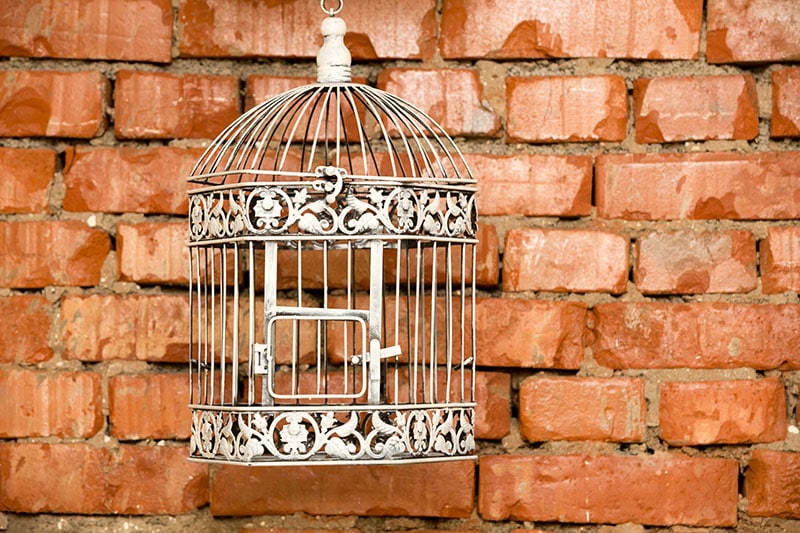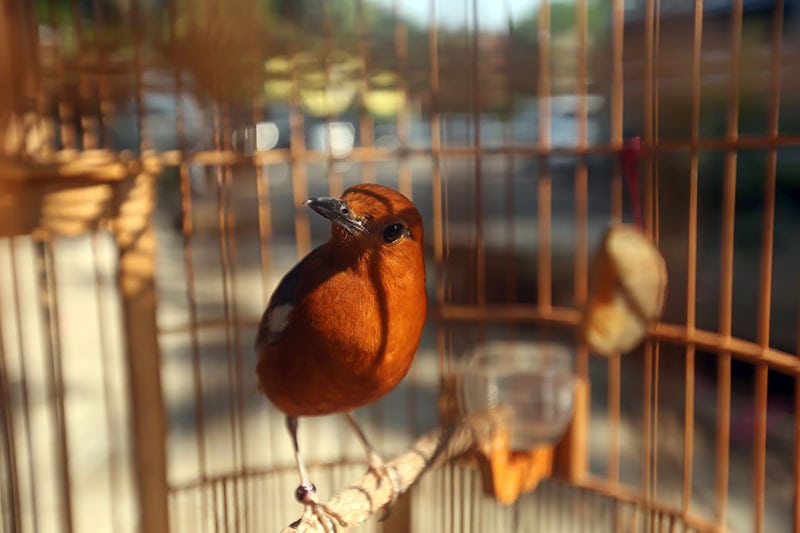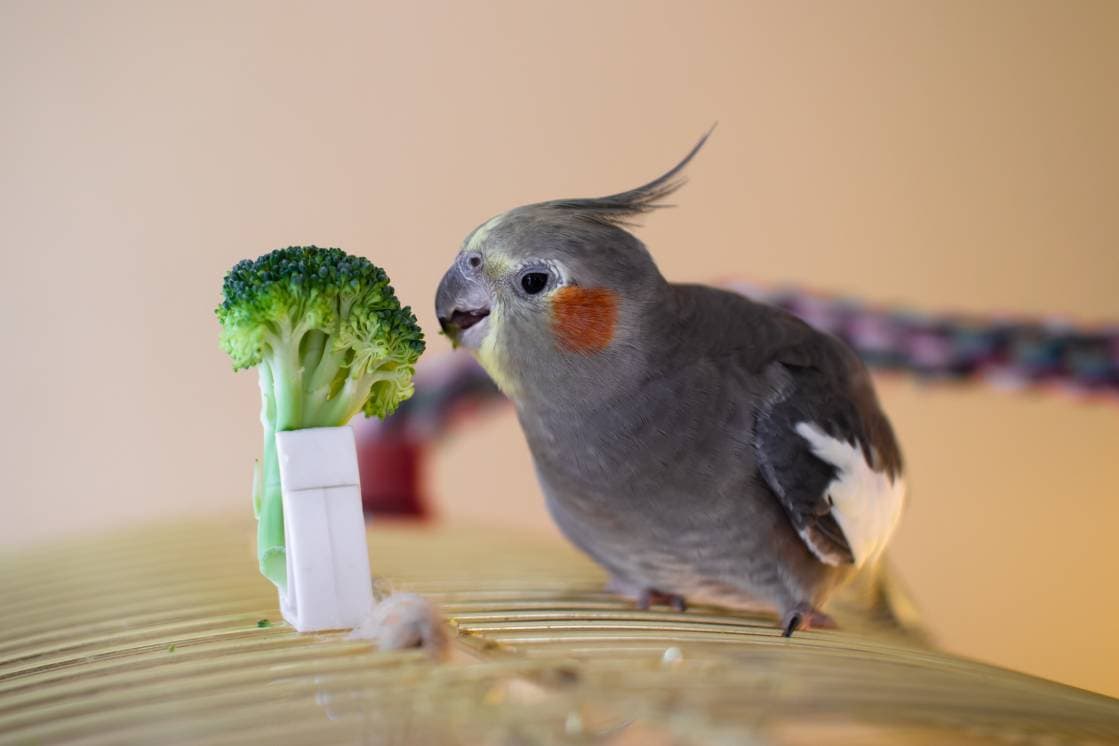
When you think of a bird cage, is your mind immediately flooded with images of square cages, or are you envisioning a round one? Most people, especially those who don’t have pet birds, likely think of round styles first. These classic-style bird cages might look nice in your space, but they’re not a practical or safe option for your pet bird.
Keep reading to learn why you should never house your bird in a round cage.
Why Are Round Cages Not Ideal?
There are several reasons why bird experts do not recommend buying a round cage for your feathered friend.
They’re Dangerous
First, they can be dangerous. As the bars of a round cage reach the top central point, the space between the bars starts narrowing. A smaller space between bars could spell disaster for your bird if it gets its foot, toes, wings, or beak stuck.
Everyone loves the look of a beautiful ornate vintage bird cage, but these are a definite no-go for anyone with pet birds. While these old cages are beautiful, they are purely for decorative purposes. In addition, they may have a toxic coating that could harm or even kill your bird. Not to mention the manufacturers of these vintage cages will have followed zero safety standards in their construction.
They’re Hard to Clean
Another issue we have with the V-shaped construction of the top of a round cage is how difficult it can be to clean. Getting a cloth into the tight spaces to clean it properly is a challenge, which may mean doing a lackluster cleaning job, putting your bird’s health at risk.

They Could Cause Psychological Stress
Next, birds can get stressed out by the lack of definition and corners in a round cage. They often look at corners as cozy hiding spots, and without a corner to hide in, they may feel unsafe.
Some experts believe that round cages can harm a bird’s psychological health because they will go round and round but never get anywhere. However, a cage with defined angles will give them a reference point so they know where they are in relation to the rest of their environment. In addition, most round cages have vertical bars, which are difficult for parrots to climb, adding to their stress.
They Don’t Have Space to Install Accessories
Birds need several key accessories hung in their cage, including water bowls, food dishes, perches, and toys. Unfortunately, the curved shape of a round cage makes finding accessories to fit onto the bars difficult.
Finding a round cage liner will also be incredibly challenging, if not impossible. Sure, you could use scissors to cut a round shape in a differently shaped liner, but it’s not convenient.
They’re Not Big Enough
Birds may be small, but they need a lot of space in their cage to move around and fly. Unfortunately, most round cages are far too small to provide the space most birds need to thrive.

How to Find the Best Bird Cage
Now you know that round cages aren’t ideal for birds, but what kinds of things should you look for as you’re cage shopping?
Smooth welding
All the welds on the cage must be smooth without any sharp edges.
Appropriate Perches and Accessories
Escape-proof doors
The best bird cage doors have a C-clamp to prevent intelligent birds from escaping.
Parallel bars
Cage Construction
Cages that are made of stainless steel or metals coated with nickel and aluminum are safe for parrots. Steel and iron are safe for parrots but will likely rust over time and therefore, aren’t good options in the long run. Other materials aren’t recommended, as they may contain toxic metals such as lead, zinc, or copper. As a rule of thumb, no metals except stainless steel, nickel plated, and aluminum should be used in your bird’s environment. Avoid painted cages, as paint may be toxic for your birds. Plastic cages aren’t recommended for birds either.
Appropriate Bar Spacing
The appropriate space between bars will depend on your bird’s species. Bars too far apart can cause injuries or allow a small bird to escape. Bars that are too close can hinder your parrot’s ability to climb easily or hinder their visibility.
Proper width
Choose a cage that is, at minimum, twice as wide as your bird’s wingspan. If you’re housing multiple birds, you’ll need an even more spacious cage.
Conclusion
We know that finding the perfect cage for your pet bird can be a challenge. There are many things to consider, and it can feel entirely overwhelming. However, we can tell you definitively that a round birdcage is a huge no-no for any bird owner. Not only are round cages dangerous physically, but they’re also impractical. So, leave the ornate vintage bird cages as a decoration and invest in a high-quality angled bird cage instead.
Featured Image Credit: coka, Shutterstock








